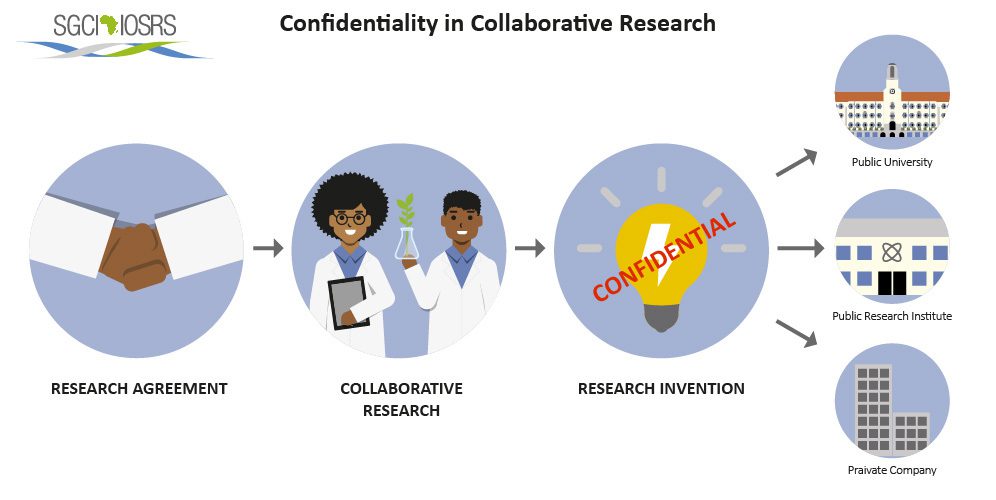Confidentiality in collaborative research is critical. The practice of keeping sensitive information secure prevents unauthorized data access and protects privacy. In large-scale research projects, agreement about how and when data…
Confidentiality in collaborative research is critical. The practice of keeping sensitive information secure prevents unauthorized data access and protects privacy. In large-scale research projects, agreement about how and when data can be used and shared forms an important part of confidentiality.
Establishing confidentiality in collaborative research is essential when private and public sectors work together. The Science Granting Councils fund multi-disciplinary, multi-institutional research projects, promoting public-private partnerships. These projects can generate a great deal of new data. They often involve multiple organizations and many stakeholders. Under this framework, researchers might have different expectations about the dissemination and use of the project’s outputs. This makes confidentiality in collaborative research, including confidentiality agreements, all the more important.
Confidentiality in collaborative research
In August 2020, the Science Granting Councils Initiative (SGCI) published a report about research confidentiality. Confidentiality in collaborative research: Why should Science Granting Councils care?
This technical guide addressed two central questions, namely:
- How should SGCs address potential conflicts over IP ownership and data sharing in collaborative research partnerships?
- How should SGCs balance protecting public interest with promoting industrial needs in government-funded collaborative research projects?
The report describes issues around confidentiality in relation to research. It details the challenges that arise when confidentiality is not addressed properly. It also includes case studies showing the consequences of breaches of confidentiality. The report also offers solutions for creating successful confidentiality, or non-disclosure, agreements.

Intellectual property ownership and data sharing
Sometimes, research cultures collide. This creates confusion when it comes to confidentiality in collaborative research. On the one hand, academic culture values rapid publication for sharing data. It supports disseminating knowledge and advancing careers. On the other hand, commercial culture prioritizes research for commercial reasons. This might include patents where data release is delayed for profit.
Non-disclosure agreements (NDAs) can help to address issues around confidentiality in collaborative research. However, they can also create restrictions. For example, researchers might find NDAs restrict them from publishing their findings. This is especially the case for commercial sponsorships like pharmaceutical trials. This practice can foster unhealthy competition, with researchers withholding data and information, even from colleagues, to maintain competitive advantages.
Public interest and industrial needs in government-funded projects
Publicly funded research institutions face a policy dilemma: balancing the need to make knowledge publicly available with the push to commercialize their research. Universities and public research institutes are encouraged to patent and license their work, forming industry partnerships. At the same time, they are encouraged to promote open science for rapid knowledge dissemination.
Increasing demands for entrepreneurial efforts and private sector linkages challenge these institutions to produce commercially viable research. Overcoming institutional and cultural barriers, such as the focus on publications for promotion, is essential. Universities must navigate the tension between creating public goods and commercializing private benefits.
Why is this important?
Research is important for development and social benefit. To drive development, technologies must transition from laboratories to the economy. Science granting councils must, therefore, enhance access to technologies and innovations. This is where confidentiality agreements pay dividends. A framework for free information exchange among partners fosters trust and inclusive behaviour. Legal measures support this.
Science granting councils promote multidisciplinary projects. However, issues like the lack of IP management frameworks hinder collaborations. The report cites a recent case study of contemporary collaborative research partnerships in Kenya under the Open and Collaborative Science in Development Network (OCSDNET). It “concluded that lack of an IP management framework and policy guidelines was a major hindrance to partnerships and collaborations.”
Where is the evidence?
The report details several further case studies. In Kenya, for example, a consortium of private and public organizations sought to improve the production process of a herbal food supplement, sunguprot. The partners did not sign an agreement about IP rights. When they planned to disseminate the research, the private sector actor feared losing the data through the public disclosure of the research findings. He sought and obtained protection over all of the data from the research. He went on to develop super sunguprot on the basis of the research.
In Uganda, a project on bee venom has stalled as a result of the lack of an IP mechanism or NDA. The project is a private-public collaboration. It is developing bee venom-based products in a university laboratory. However, the private sector partners are ready to commercialise the products. But there is no “vehicle” (or legal mechanism) to move the products from the university to the private sector.
What should SGCs do?
Developing policy guidelines on confidentiality and non-disclosure is critical. As the report states, conflicts are likely to arise sooner or later in cases where confidential information may have proprietary and commercial value. A confidentiality agreement, or NDA, is an important legal contract between parties that outlines how they would share certain information with each other for a specific purpose.
Confidentiality agreements are vital in research to protect sensitive information, ensuring participants’ privacy and safeguarding proprietary data. They promote trust between researchers and participants. Most importantly, they establish how and when data can be shared. This helps maintain the integrity of the research process and protects intellectual property and competitive advantage.
The report highlights the central role that confidentiality agreements play. In our next blog, we examine how to put them in place effectively. We look at what they are, what they should include and when they should be used.
Related articles
Confidentiality agreements and how they safeguard collaborative research
Challenges and solutions for stronger research ethics in Africa
Supporting Science Granting Councils to fund and manage research and innovation projects
Themes
The SGCI aims to strengthen the capacities of these SGCs to support research and evidence-based policies that will contribute to economic and social development.

